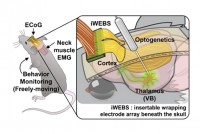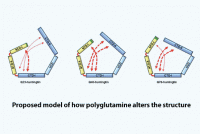Professor Mi-Young Kim and her team at Korea Advanced Institute of Science and Technology have recently revealed a novel function of JMJD3, one of the histone demethylase proteins, on melanoma tumor progression. This work was published in Cancer Research on January 4, 2016.
Melanoma is a malignant tumor of melanocytes and accounts for most skin cancer-related deaths. The 5-year survival rate of this disease is about 10% once it metastasizes, or spreads, to other organs. This low survival rate is mainly due to the lack of effective therapeutic drugs.
A possible alternative treatment of cancer is epigenetics, which refers to external changes that can occur to turn genes “on” or “off.” These changes can affect the final outcome of a gene expression without changing the actual DNA sequence. H3K27 methylation, a repressive mark of transcription, is one of the key epigenetic modifications that regulate various gene expressions. Deregulated H3K27 methylation is often associated with pathological conditions including cancers.
Professor Kim and her team demonstrated the critical role of JMJD3 in melanoma growth and metastasis by affecting H3K27 methylation. Their research has revealed that JMJD3 exerts its tumor-promoting effects by activating NF-kB and BMP-mediated transcriptional programs by changing methylation status of H3K27 at promoter regions of target genes. These changes resulted in multifaceted effects including enhancement in self-renewal, stromal recruitment, and transendothelial migration. Furthermore, the research team found that BMP signaling, one of downstream mediators, created a positive feedback loop with JMJD3.
This research not only identified JMJD3 as a key epigenetic regulator in melanoma progression and metastasis, but also uncovered the underlying mechanisms, providing a rationale for targeting JMJD3 for melanoma treatment.
This research was supported in part by the Basic Science Research Program through the National Research Foundation of Korea (NRF) that is funded by the Ministry of Education, Science and Technology (NRF-2012R1A1A1041379 and NRF-2011-0020334), and by the Ministry of Science, ICT, and Future Planning (Project No. 2015054201).









